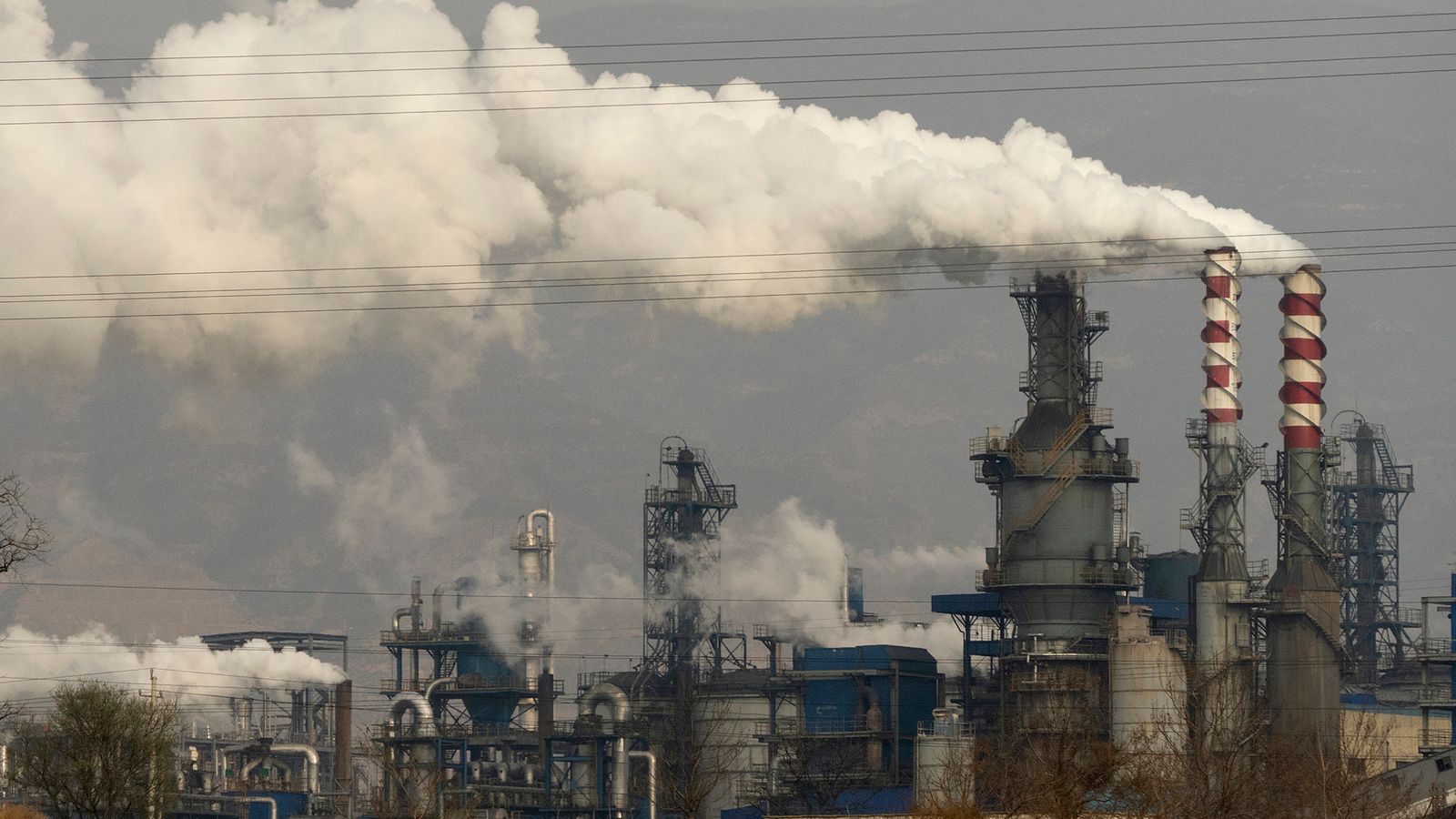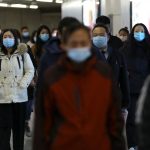Power shortages and supply chain difficulties are being widely blamed for a slowdown in China’s economic recovery from the coronavirus pandemic.
Official figures from the country’s National Bureau of Statistics (NBS) showed the world’s second-largest economy grew by 4.9% in July-September from a year earlier.
Economists polled by the Reuters news agency had expected a figure around 5.2%.
That was despite widespread pressures from several challenges including the Evergrande Group debt crisis which has rattled confidence in the country’s sprawling property sector and forced the authorities to deploy measures to bolster market confidence.
The power crunch, which is adding to the supply chain difficulties, has seen swathes of blackouts through the rationing of electricity and prompted demands for domestic coal production to be ramped up to help meet demand.
Summer floods also had an impact on the manufacturing powerhouse, experts suggested.
The figures released by the NSB showed factory output was at its weakest since early 2020, when heavy COVID-19 curbs were in place, during the third quarter.
Ford backs UK plant with £230m investment to support electric car future
Facebook plans to hire 10,000 people in Europe to build its metaverse
There’s a shortage of bouncers – and nightclub bosses fear it could put public safety at risk
NSB spokesperson Fu Linghui told a briefing in Beijing: “The domestic economic recovery is still unstable and uneven.”
Economists said that at an annual rate of 4.9%, China’s overall growth rate was at its weakest level for a year.
An annual rate of 18.3% was recorded during the first quarter of the year.
But Mr Fu insisted there were signs the power issue was improving as coal supplies improved.
“With these measures being implemented, the tight supply of coal and electricity has been eased, and the impact on economy will subside.
Please use Chrome browser for a more accessible video player
“Since September, electricity generation has been growing faster. Overall the tight supply of energy is short-term and the impact is controllable,” he told reporters.
He also told the news conference that the country’s central bank still had room to add further support as the Evergrande crisis – arising from a crackdown on corporate debt levels initiated by authorities in Beijing – continued to sap confidence.
Louis Kuijs, head of Asia economics at Oxford Economics, said: “In response to the ugly growth numbers we expect in coming months, we think policymakers will take more steps to shore up growth, including ensuring ample liquidity in the interbank market, accelerating infrastructure development and relaxing some aspects of overall credit and real estate policies.”
The central bank, the People’s Bank of China, is expected to remain cautious about monetary easing due to worries about high debt and property risks.






















